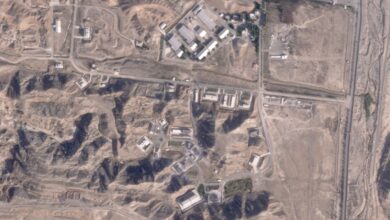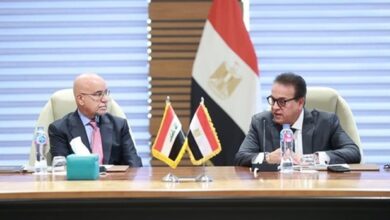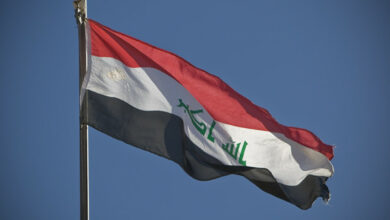Riyadh–Saudi King Abdullah, head of the most influential Sunni nation in the Middle East, held talks on Saturday with former Iraqi Prime Minister Iyad Allawi who leads a secular Sunni-Shia coalition into parliamentary elections.
The Saudi official SPA news agency gave no details about the talks which it said were also attended by the head of Saudi intelligence, Prince Muqrin bin Abdul-Aziz.
Saudi Arabia has maintained a neutral stance on the often-violent sectarian tensions that have been ripping Iraq apart since the 2003 US-led invasion ousted Saddam Hussein.
But the kingdom is concerned over the growing influence in Iraq and other countries in the region of its regional Shia rival Iran.
Allawi is also a Shia, but is a secularist, anathema to Iran’s religious rulers who have backed Shia Islamist parties in Iraq.
The leader of Allawi’s Sunni allies in the Iraqiya electoral bloc, Saleh al-Mutlaq, withdrew his National Dialogue Front from the March 7 ballot after he was banned from running for alleged links to Saddam’s outlawed, Sunni-dominated Baath party.
Mutlaq was one of about 145 candidates from different parties whose appeals against a decision by a Shia-dominated commission to bar them from the vote were rejected this month.
The ban actually affects more Shias than Sunnis, but it includes prominent Sunnis and Shias seeking secular alliances that are expected to fare well against the religious Shia Islamist parties that have dominated Iraq since the invasion.
The Iraqiya list said it would continue to participate in the election despite the boycott by one party in the alliance.
Iraq’s once-dominant minority Sunnis largely shunned the national vote in 2005, fuelling a bloody insurgency that U.S. and Iraqi officials hope Sunni participation in the coming election will help end.
The parliamentary ballot is seen as a critical juncture as Iraq tries to move toward rebuilding after decades of war, and away from years of sectarian carnage between Shias and Sunnis after the US invasion.




